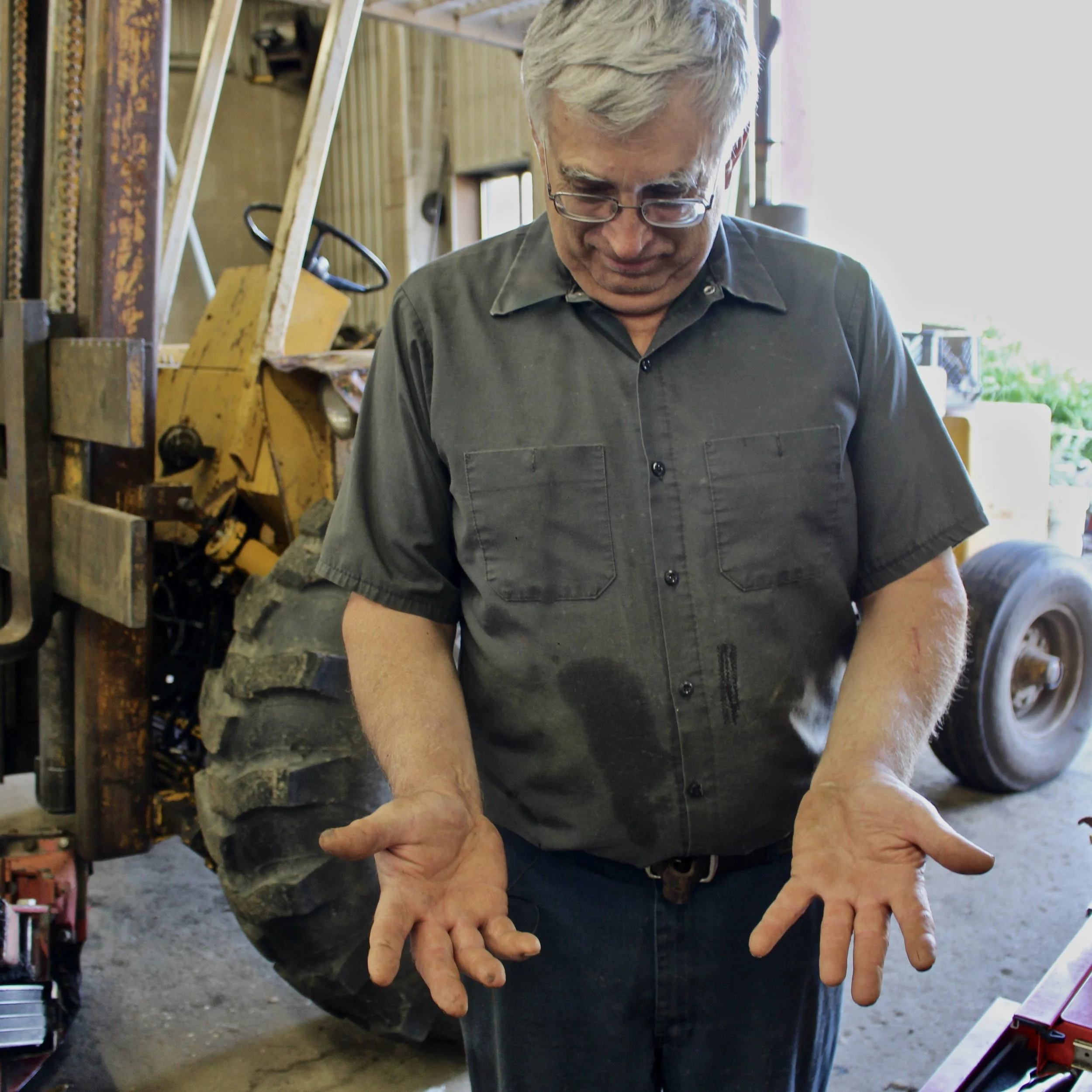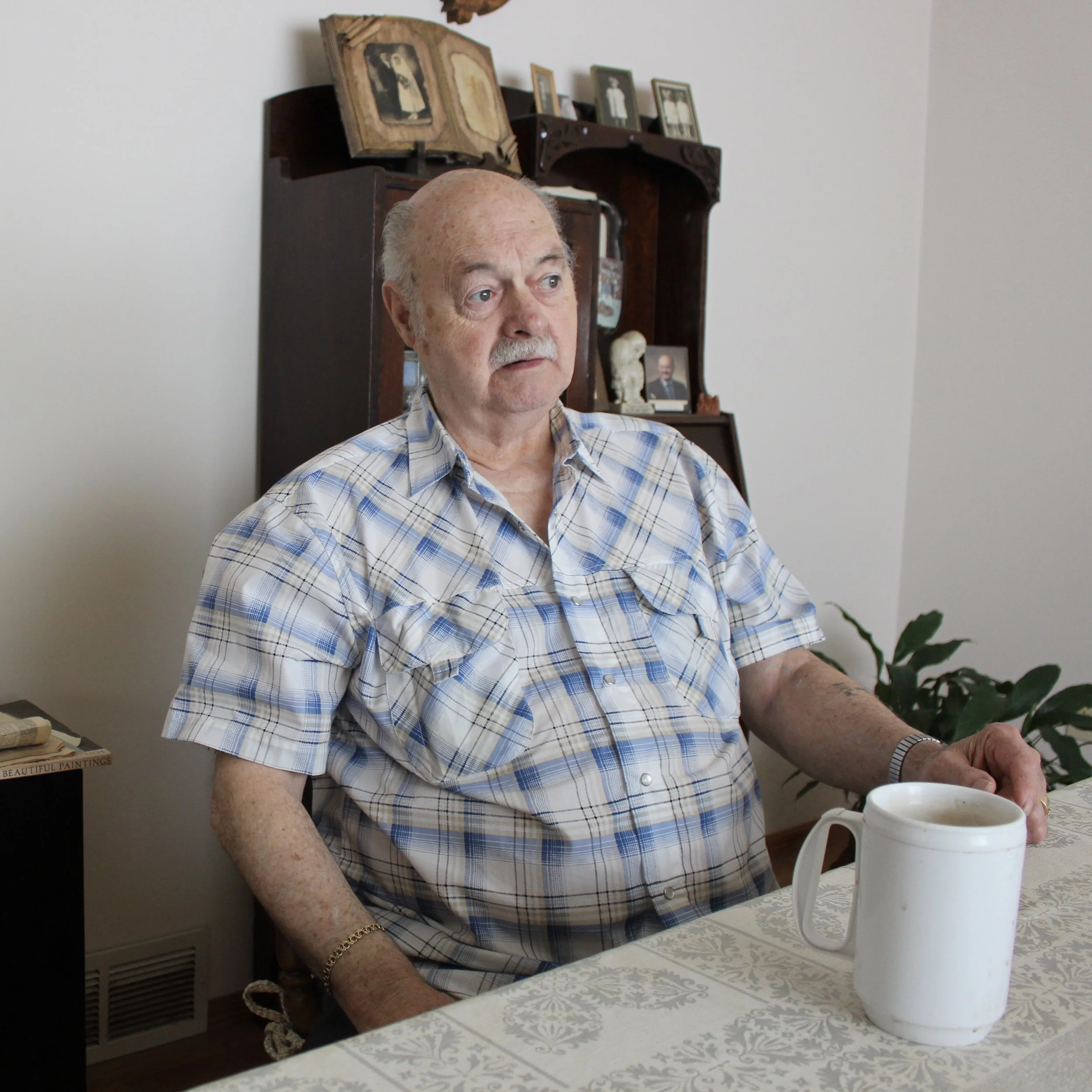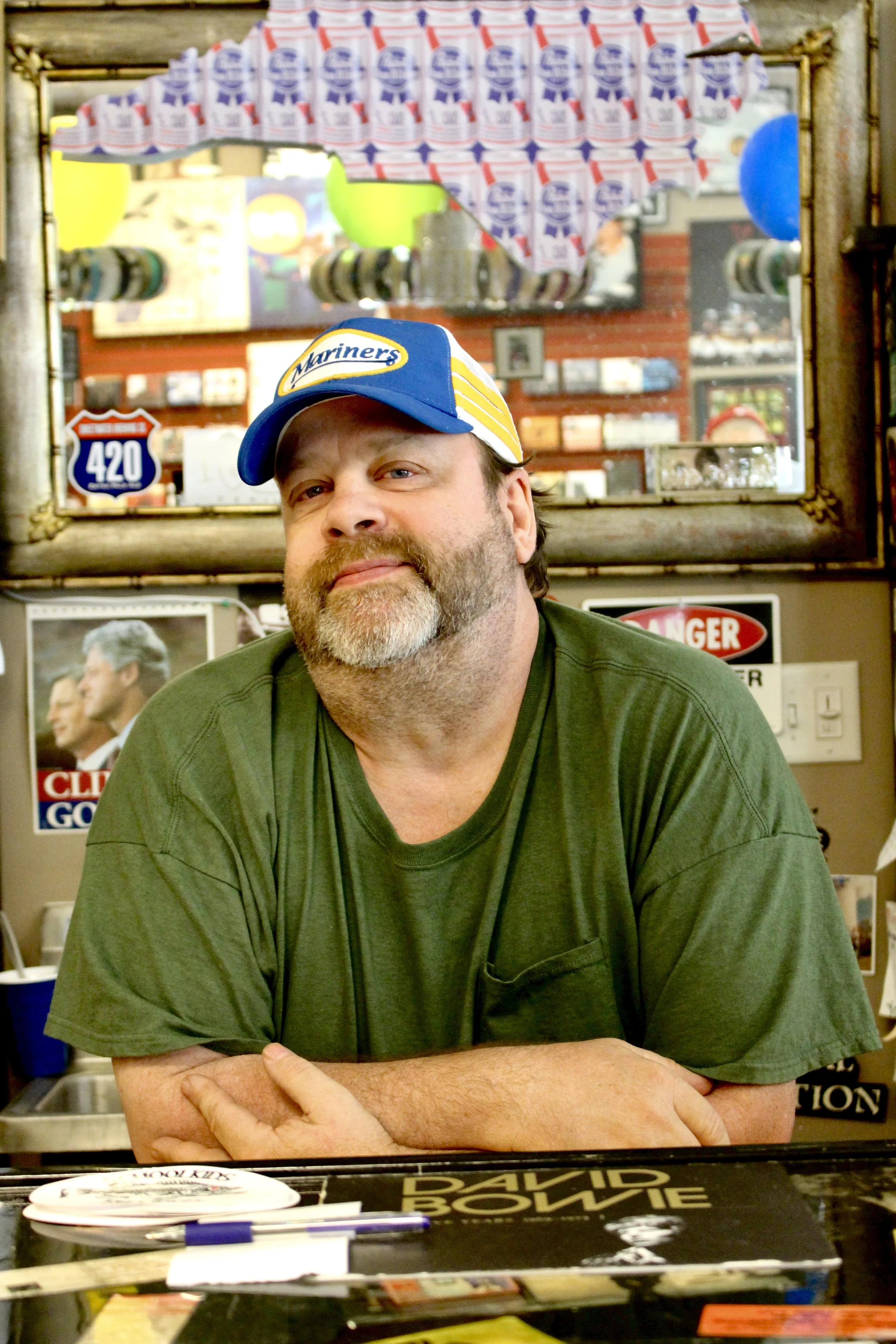The Mechanic
Bob to the right, Roger to the left
Roger and Bob were shooting the breeze as I walked unnoticed through the front door of the large hangar of a mechanic shop. They spoke with the sort of lyrical pace you only find in small towns, with an effortless poetry to their language. "They combined three good shops into half of a decent shop, so of course they didn't have the part." I sat overhearing for a moment, enjoying the ease and wit of a time and place where talking was all you had. The shop smelled of clay, hay, and rust. A sort of always familiar smell, even to those who've never smelled it before.
Roger agreed to talk a bit about his life. Bob lucked out, saying he could claim "I knew that guy" whether Roger turned out famous or made a fool of himself. They seemed close. Closer than most folks are in any city I've ever lived in. He grew up in Paynesville Minnesota, a town of about 2,500, and about 1600 when he was young. I asked him some of his earliest memories:
“I don’t know, on the news a plane crashed in the 50’s. It was on the TV and it always stuck in my mind. Probably from the fact that we only had a TV for about a year then. Didn’t get another one until the 80’s. It was an old tube-type machine and the tubes on those things would burn out all the time. My dad wasn’t going to go around on it a second or a third time, it didn’t interest him enough I suppose.
We all had plenty to do without TV. In the winters we shoveled coal. I shoveled so much coal. You’d shovel it into the truck, and that’d warm you right up in the dead of winter. Then you’d shovel it into the storage when you got home, and you’d be warm. Then you’d shovel it into the fire, and you’d be warm. Then if you were within 10 feet of the fire you’d be warm, but of course you never had a chance to be that close. Then you’d shovel the duds back into the truck, and that’d warm you up again. And you’d shovel the duds out of the truck when you brought them back, and you’d be warm then. It’s funny, just about the only time I wasn’t warm in the winter was when the fire was burning how it should in the corner of the room.”
He was reluctant to think of his upbringing as anything but run-of-the-mill. Kids played, they drove up and down the main street, they got into trouble.
“I grew up right here in Paynesville. I guess I liked it, I didn’t know any different. You had a block in town where everyone got together. The kids in town all kind of played together. Being as the creamery in town had a whistle, when that whistle blew, you knew damn well you’d better be in for supper, because your parents were going to start supper with or without you. And if you weren’t there to eat it, it was gonna get eaten by everyone else at the table.
But I spent a lot of time too, just getting into trouble in my dad’s shop. We’d take things apart and not put them together. We just putzed around with stuff and sometimes we helped, sometimes we hindered him.
Some of my friends were gearheads like me. We tried to build a go-kart or two. Never really got them running. Then we found out about girls and it didn’t really matter anymore. Plus we started working. I was working here fully by the time I was about 16”
In a small town, word traveled faster than his legs could carry him, so no troublemaking went unnoticed.
“If you did something wrong, the whole neighborhood knew. It was well discussed and you didn’t have to worry about the news getting home.
Everybody gets in a little trouble at that age, but here in Paynesville, you knew before you got home if you were in trouble. And your parents knew too.
It was always just little mischief, no property damage, nothing really outrageous. Just stuff you probably shouldn’t be getting into.
And when you got home you knew where you stood. My father was the main carry-outer of threats, but my mother had her way. She laid down the guide rules and then the old man, he stiffened them up a little bit. He was fair, but he was very stern. He came from a very strict household and his house was going to stay strict. ”
Roger was describing a classic case of what cognitive scientist George Lakoff describes as "Strict Father Morality" in his upbringing. It's a standard trope for conservative communities but he seemed to avoid jumping whole-hog into the stereotypical conservative mindset. Instead of following this moral roadmap, insisting on a strong, almost authoritarian set of moral rules for the country, Roger surprised me near the end of the interview with his description of what made him proud of America
“Being an American means I belong to a society where there’s a lot of tolerance of other people and ideas. I belong to a society that has a lot of domination in the world. I belong to a society that’s probably getting close to using up its good with all the domination. But mostly it means I belong to a country that’s pretty tolerant of most people coming on. And there’s times when it gets hairy like now we have Ethiopians and Somalians coming in and that’s going to take two or three generations to even out. Because they come from a totally different culture and they want to join in with us but we know you can’t drop everything overnight. I’m glad to belong to a society that tolerates and includes people and allows them to come in with us. That’s still what makes our society work pretty darn well. ”
There was a sense of duty and a belief in a common cause that was refreshing and interesting to me to hear from someone who claimed a conservative upbringing. In popular coverage, conservatives are for rugged individualism and a near-abolition of the state from providing resources to people. Roger, turned that somewhat on its head as he described what his responsibility is as an American.
“My first responsibility is to live a good life to answer to God. My second responsibility is to my family. My third responsibility is to my country to try to make it better for everybody. And you do that through various ways from volunteering to being in government. Even if you just take care of your neighbors through government, you don’t have to be a highfalutin politician, you can be a low-key politician. It can be done in many ways but you can’t just leave it for everyone else to do everything for you. You have to put some effort into it.”












